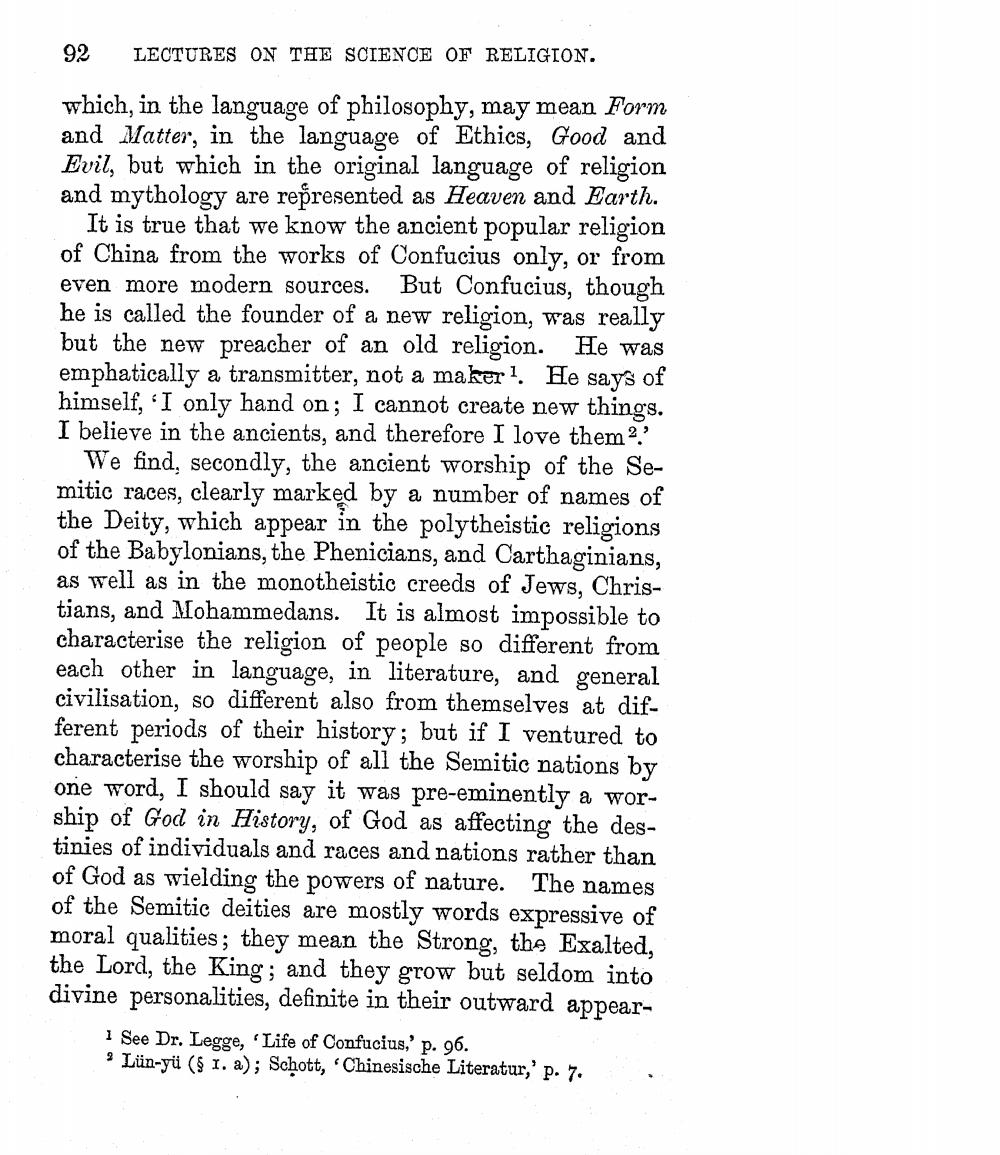________________
92
LECTURES ON THE SCIENCE OF RELIGION.
which, in the language of philosophy, may mean Form and Matter, in the language of Ethics, Good and Evil, but which in the original language of religion and mythology are represented as Heaven and Earth.
It is true that we know the ancient popular religion of China from the works of Confucius only, or from even more modern sources. But Confucius, though he is called the founder of a new religion, was really but the new preacher of an old religion. He was emphatically a transmitter, not a maker1 He says of himself. I only hand on; I cannot create new things. I believe in the ancients, and therefore I love them??
We find, secondly, the ancient worship of the Semitic races, clearly marked by a number of names of the Deity, which appear in the polytheistic religions of the Babylonians, the Phenicians, and Carthaginians, as well as in the monotheistic creeds of Jews, Christians, and Mohammedans. It is almost impossible to characterise the religion of people so different from each other in language, in literature, and general civilisation, so different also from themselves at different periods of their history; but if I ventured to characterise the worship of all the Semitic nations by one word, I should say it was pre-eminently a worship of God in History, of God as affecting the destinies of individuals and races and nations rather than of God as wielding the powers of nature. The names of the Semitic deities are mostly words expressive of moral qualities; they mean the Strong, the Exalted, the Lord, the King; and they grow but seldom into divine personalities, definite in their outward appear
1 See Dr. Legge, 'Life of Confucius,' p. 96. · Lün-yü ($1. a); Schott, Chinesische Literatur,' p. 7.




